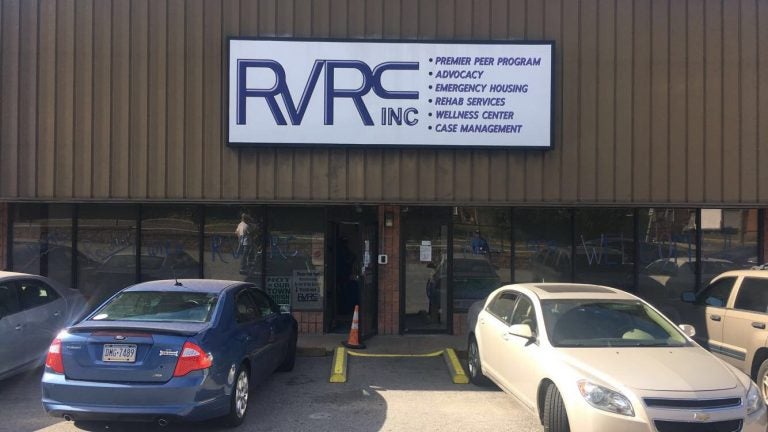Delaware shelter, treatment program shut down
While Code Purple shelters open when temperatures fall to 32 degrees or below, the Sunday Breakfast Mission in Wilmington is the only other 24/7 emergency shelter in the area.

SafeSpace, formally the Rick VanStory Center, closed its doors after losing a state contract. (Camilia Jones for WHYY)
A residential behavioral health and addiction treatment program in Delaware has closed its doors after failing to meet its fundraising goal.
Wilmington’s SafeSpace, which also operates an emergency homeless shelter, raised only about $8,000 of the more than $212,000 it needed to remain open through March.
The state’s Division of Substance Abuse and Mental Health had been giving the facility $850,000 annually to operate its program, which included residential treatment for individuals with severe and persistent mental health issues. The founder also created an emergency walk-in shelter for homeless individuals who do not have that diagnosis.
The state did not grant SafeSpace, formally known as the Rick VanStory Center, a new contract this year. In 2017, Wilmington police began an investigation into the possible misappropriation or theft of at least $125,000 from the shelter under Alan Conover, who has since left the organization. A spokesman for the state would not say if that incident contributed to the organization not receiving a contract, only that its application fell short and performance was an issue in the past.
SafeSpace community liaison Edwina Bell said the Division of Substance Abuse and Mental Health has placed about 90 percent of its clients in other residential programs throughout the state.
However, individuals who use the emergency shelter have limited options. While Code Purple shelters open when temperatures fall to 32 degrees or below, the Sunday Breakfast Mission in Wilmington is the only other 24/7 emergency shelter in the area.
The Rev. Tom Laymon, president and CEO of the Sunday Breakfast Mission, said his shelter that runs on private donations is never too full — taking in as many as 300 in one night.
“Particularly when extreme weather comes, hot or cold, more people come in, and that’s to be expected. It doesn’t take much cold for people to die from cold,” he said. “We expect to see more people, and if there’s less space for them to go to because (SafeSpace) is not there, hopefully they will come in and that’s what we want to see.”
Organizations including Sojourners’ Place in Wilmington are offering services to SafeSpace’s residential clients.
The staff has started transitioning individuals into its program, which offers case management, substance abuse counseling and mental health counseling to individuals experiencing homelessness, said executive director Robyn Beck-Gott. However, that does place an additional strain on the organization, which can accommodate up to 50 residents.
“At this time funding has been tight throughout the state, especially for local nonprofits, specifically for working with the homeless population,” she said. “So our budget is as slim as it can possibly be without compromising the quality of our service.”
SafeSpace said it plans to use the $8,000 it raised to open a smaller operation in Wilmington, and it will continue to advocate more shelter options in the state.
WHYY is your source for fact-based, in-depth journalism and information. As a nonprofit organization, we rely on financial support from readers like you. Please give today.





